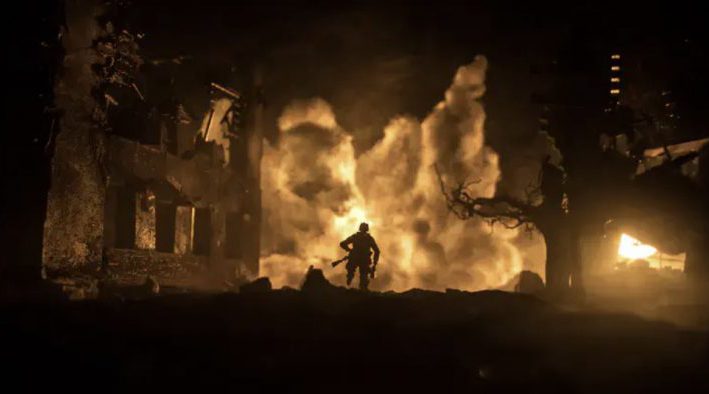We had become what our ancestors were in the last days of the Temple: a people so embroiled in internal division that we left ourselves exposed. Opinion.
Steve Rosenberg – is the principal of the Team GSD and the regional director for NAVI in Philadelphia. He is the author of the book, Make Bold Things Happen: Inspirational Stories From Sports, Business and Life
(JNS) The Jewish people have survived Pharaohs, inquisitions, pogroms and gas chambers. We have endured dispersion, genocide and countless attempts to erase us from history. And yet, with all that resilience in the face of external threats, we too often crumble from within.
David Ben-Gurion, Israel’s founding father and first prime minister, once said that the Jewish people have always had two enemies: “the external enemy that wanted to destroy us and ourselves.” It is the latter enemy that may be the most insidious because it wears the mask of kinship and eats away at our strength from the inside out.
The roots of Jewish internal discord are not new. They stretch back to the times of the Bible. The First Temple, built by King Solomon, was destroyed not solely because of external military conquest by the Babylonians but because of the rot within. As the prophet Jeremiah warned, the people had forsaken justice, exploited the vulnerable and abandoned God’s law—not in ignorance, but with willful defiance and arrogance. The 12 tribes of Israel, once united, became fractured into the kingdoms of Judah and Israel. Civil war, rivalries and betrayal made them ripe for invasion and conquest.
The destruction of the Temple in 586 BCE was not just a military defeat. It was a spiritual and national collapse born of infighting, hubris and moral decay. The external enemy merely finished the job that the internal division began.
We repeated that pattern again during the time of the Second Temple. It was not the might of Rome alone that brought down Jerusalem but the zealots, the Sicarii, the Jewish factions so hell-bent on ideological purity that they burned their own food supplies in the siege of Jerusalem rather than see a compromise. Rabbi Yohanan ben Zakkai’s escape from the city was seen by some as betrayal, but it was the only lifeline left to preserve any remnant of Torah and Jewish continuity.
Sound familiar?
Fast-forward to Oct. 7, 2023—a day that will be remembered not only for the unimaginable horrors inflicted by Hamas on Israeli civilians but also for what it revealed about us.
In the months leading up to that day, Israel was engulfed in bitter protests, division and rage over judicial reform. Hundreds of thousands of Israelis were in the streets, furious with one another. Brothers stopped speaking. Reservists threatened not to serve. Security briefings were politicized. National cohesion—so critical to Israel’s defense and resilience—was shattered. And when Hamas struck, they struck not only with bullets and rockets but with a precision understanding of our distraction.
We had become what our ancestors were in the last days of the Temple: a people so embroiled in internal division that we left ourselves exposed. While Israel’s enemies plotted terror and death, Jews in Israel and around the world fought culture wars with each other. On campuses, in synagogues, on WhatsApp groups and in the Knesset, we hurled accusations, questioned loyalty and canceled one another.
This isn’t to say that internal debate is inherently bad. Debate is the oxygen of Jewish tradition. The Talmud is built on it. But there’s a difference between debate and destruction. There’s a difference between disagreement and disintegration.
Hamas didn’t invent antisemitism. But they reminded us that we don’t have the luxury of fighting each other while our enemies sharpen their knives.
We are still mourning the dead. We are still searching for hostages. And yet, even now—even now—there are Jews more interested in scoring political points, blaming factions or spinning narratives than in restoring unity.
And what of American Jewry? On college campuses, where Jewish students are vilified for being Zionists—or just for being Jewish—we see a younger generation desperate for guidance, only to be met by a fractured and often cowardly communal response. While grassroots groups fight back, too many legacy institutions remain frozen, too afraid of offending their progressive allies to stand fully with their own people.
If we want Oct. 7 to be the end of a tragic chapter and not the beginning of a larger downfall, we must learn from history. The First Temple fell when we stopped caring for one another and focused on power. The Second Temple fell when baseless hatred consumed us. And if we are not careful, this modern era of Jewish sovereignty may be equally short-lived—not because of Iran or Hamas but because of our own refusal to listen to one another, to forgive and to put Jewish unity above political gain.
This is not a call for blind uniformity. It’s a call for achdut—a sacred unity that makes room for difference, not for destruction. If we are to survive, we must choose to be a nation again. Not a collection of tribes. Not a hierarchy of Jews who call each other “too religious,” “not Zionist enough,” “too woke” or “not woke enough.”
Ben-Gurion understood something we too often forget: The world will never stop hating the Jew. But if we hate ourselves, if we turn on one another, then we do the enemy’s work for them.
Our choice now is simple: Neither Israel or the Diaspora can afford another internal unraveling. Either we fight the external enemy together—or we fall apart, alone.





